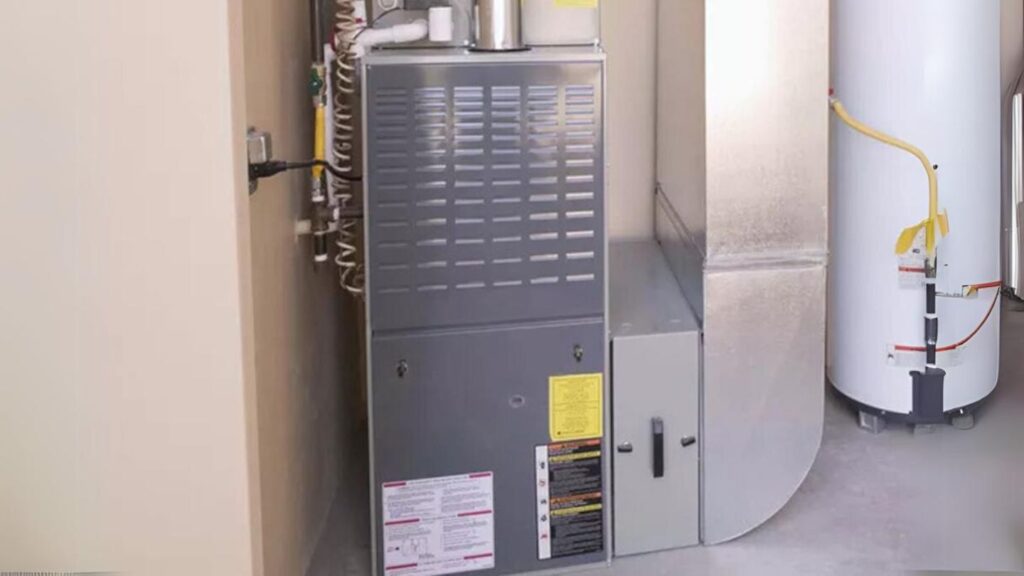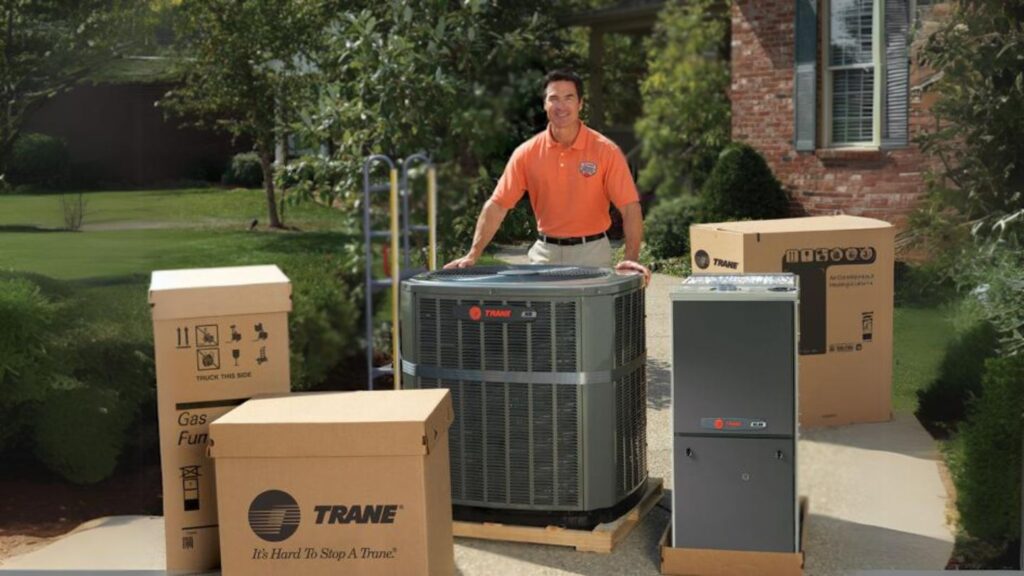Gas vs Electric Furnace: Choosing the Best Option for Your Home
Choosing between electric and gas furnaces involves careful consideration of costs, efficiency, and safety. Total Comfort Cooling & Heating Inc. is here to guide you through these key differences, helping you make an informed decision that ensures your home stays comfortable, efficient, and safe.
Key Takeaways
- Gas furnaces provide rapid heating and cost-efficiency, which is ideal for quick warmth and lower operational costs.
- Electric furnaces offer straightforward installation and excellent energy conversion, making them attractive for homeowners who prioritize ease of setup and consistent performance.
- When selecting a heating system, consider whether an electric or gas furnace better suits your needs based on safety, installation requirements, maintenance, and both initial and ongoing costs.
Introduction
Selecting the right furnace type for your home can feel complex, but understanding the unique benefits and considerations of gas versus electric furnaces makes it easier. With Total Comfort Cooling & Heating’s trusted installation and maintenance services, you’ll be supported every step of the way. Gas furnaces are known for delivering quick, intense warmth through combustion, which is ideal for immediate comfort. Electric furnaces, meanwhile, use electricity to create heat, making them simpler to install but potentially more expensive to operate.
This guide will examine these differences to help you decide on the best heating option tailored specifically to your home and budget. Let’s explore the essentials of both gas and electric furnaces, from cost-efficiency to environmental impact.
Understanding Gas and Electric Furnaces
What is a Gas Furnace?

A natural gas furnace is a heating system that uses natural gas or propane to generate heat. The furnace operates by igniting the gas to warm a heat exchanger, which then heats cold air pulled from the intake. This warm air is pushed through the home via ducts, ensuring fast and even heating.
Advantages of Gas Furnaces:
- Efficiency in Colder Climates: Gas furnaces quickly generate substantial warmth, ideal for sudden cold spells.
- Lower Operating Costs: Since natural gas is generally more affordable than electricity, gas furnaces often lead to lower heating bills.
What is an Electric Furnace?
An electric furnace heats air by passing it over electric heating coils. The heated air is then pushed through the home’s ductwork by a blower, providing warmth without any combustion. Electric furnaces generally have a lower purchase and installation cost, with an average starting price of around $835.
Advantages of Electric Furnaces:
- Simpler Installation: Electric furnaces don’t require venting, making them easier to install and ideal for homes without gas access.
- Lower Maintenance Needs: Electric systems eliminate risks associated with combustion, making them generally safer and easier to maintain.
Energy Efficiency and Environmental Impact
When choosing between gas and electric furnaces, energy efficiency and environmental impact are key considerations. Energy efficiency is typically measured by a furnace’s Annual Fuel Utilization Efficiency (AFUE) rating, which shows how effectively the furnace converts fuel or electricity into heat. Higher AFUE ratings indicate better energy conversion, resulting in lower fuel costs and reduced environmental impact over time.
- Gas Furnaces: Gas furnaces offer a range of efficiency ratings, with high-efficiency models reaching up to 98.5% AFUE. These models maximize fuel use, reducing emissions and costs, especially where natural gas is affordable and accessible. High-efficiency gas furnaces are ideal for those looking to lower their environmental impact and heating expenses.
- Electric Furnaces: Electric furnaces are highly efficient, often achieving nearly 100% efficiency as they convert almost all consumed electricity into heat. However, their environmental impact varies based on local electricity sources. In regions with abundant renewable energy, electric furnaces may have a smaller carbon footprint. Conversely, in areas dependent on fossil fuels, their environmental impact could be higher.
Read more: Top Tips on How to Maintain Furnace and Save Money
Maintenance and Safety Considerations

Both gas and electric furnaces, including natural gas furnaces, require regular upkeep for safe and effective operation. While electric furnaces generally need less maintenance, gas furnaces benefit from consistent checks due to the combustion process, which can produce carbon monoxide if not properly maintained.
Maintenance Needs
- Gas Furnaces: Require more frequent inspections to check for leaks, combustion efficiency, and venting safety.
- Electric Furnaces: Although simpler, electric furnaces still benefit from regular maintenance to ensure optimal performance.
Safety Concerns
When it comes to safety, both gas and electric furnaces have their considerations:
- Gas Furnaces: Pose a risk of carbon monoxide poisoning and gas leaks if not properly maintained or installed. Carbon monoxide is a colorless, odorless gas that can be deadly, making it crucial to ensure your gas furnace is in top condition. A flue or venting system is also essential to safely exhaust combustion gases outside the home.
- Electric Furnaces: Generally safer as they do not produce combustion gases or carbon monoxide. However, improper installation or maintenance can lead to electrical shock or fire hazards.
To minimize safety risks associated with both types:
- Have your furnace installed by a certified professional.
- Maintain regular inspections.
- Ensure proper ventilation and airflow around the furnace.
- Install carbon monoxide detectors in your home.
Taking these precautions ensures safe and worry-free warmth from your heating system.
Longevity and Lifespan
The longevity and lifespan of a furnace depend on various factors, including type, usage, and maintenance.
Average Lifespan:
- Gas Furnace: 15–20 years
- Electric Furnace: 20–30 years
Factors Affecting Lifespan
- Quality of the Furnace: High-quality components typically increase lifespan.
- Maintenance: Regular maintenance can significantly extend a furnace’s operational life.
- Usage: Frequent or extreme use may strain the system, potentially shortening lifespan.
- Climate: High humidity or extreme temperatures can impact longevity.
By understanding these factors and committing to regular maintenance, you can maximize the lifespan of your gas or electric furnace.
Geographic Location and Furnace Choice

Geographic location plays a significant role in determining the best furnace type for your home.
- Colder Climates: Gas furnaces may be more efficient in colder climates with harsh winters.
- Milder Winters: Electric furnaces are more practical and cost-effective for warmer regions with moderate winters.
- High Humidity Areas: A furnace with a built-in humidistat can help maintain comfortable indoor air quality in humid locations, and it is available in both gas and electric models.
Professional Installation and Service
Installing a furnace requires precision and expertise. At Total Comfort Cooling & Heating, Inc., our licensed technicians specialize in both gas and electric furnace installations, ensuring safe and effective setups for long-term comfort. We also service various types of heating equipment for reliable, efficient heat creation.
Conclusion
Deciding on the ideal heating system, whether a gas or electric furnace, necessitates a careful assessment of cost, efficiency, and safety. By weighing these crucial factors, you can choose a system that best meets your home’s requirements and fits your budget.
At Total Comfort Cooling & Heating Inc., we’re your trusted experts for HVAC installation in Port Charlotte, providing customized solutions to meet your unique comfort needs. Our expert team ensures year-round comfort with dependable service and personalized advice. Contact us today to find the perfect heating solution for your home and feel the Total Comfort difference!
Frequently Asked Questions
Is a gas furnace cheaper to run than an electric one?
Typically, yes. Natural gas is often less expensive than electricity, leading to lower operating costs for gas furnaces.
Which furnace type is safer?
Electric furnaces avoid combustion risks like carbon monoxide, but both types are safe when professionally maintained.
Which is better for warm climates like Florida, gas or electric?
Electric furnaces may be ideal due to ease of installation and sufficient heating for moderate winters.
How long does each furnace type last?
Gas furnaces generally last 15–20 years, while electric furnaces can last up to 30 years with proper care.
READY FOR YOUR NEXT HEATING OR COOLING PROJECT?
Contact us to get a quote and see why our customer service is recognized as the best in the industry.






 Special Offer: 12 Months - No Interest, No Payments!
Special Offer: 12 Months - No Interest, No Payments!